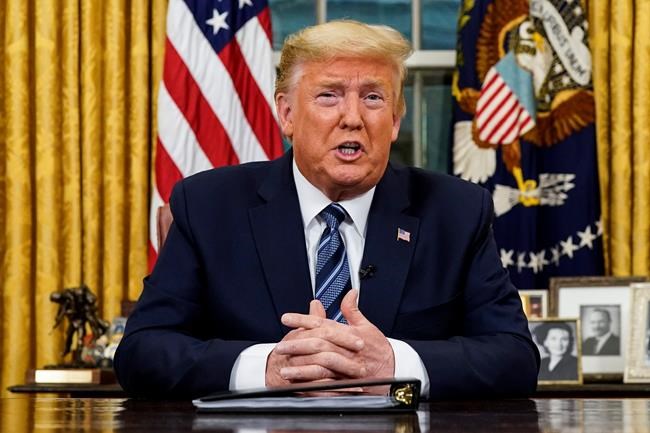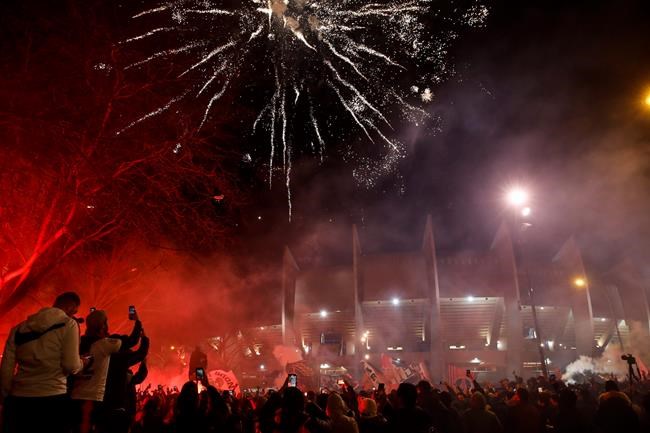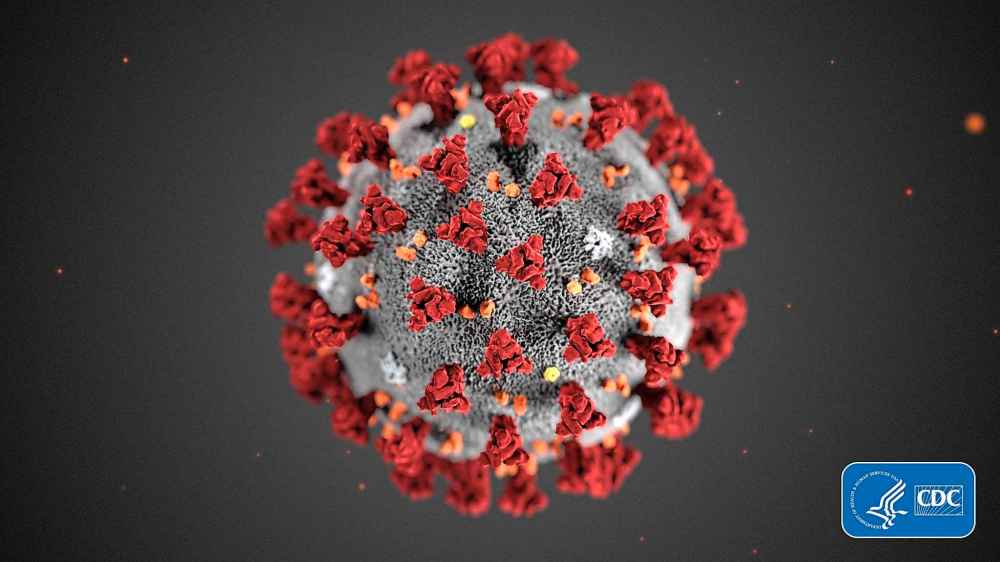WHO declares coronavirus a pandemic, urges aggressive action
Advertisement
Read this article for free:
or
Already have an account? Log in here »
To continue reading, please subscribe:
Monthly Digital Subscription
$0 for the first 4 weeks*
- Enjoy unlimited reading on winnipegfreepress.com
- Read the E-Edition, our digital replica newspaper
- Access News Break, our award-winning app
- Play interactive puzzles
*No charge for 4 weeks then price increases to the regular rate of $19.00 plus GST every four weeks. Offer available to new and qualified returning subscribers only. Cancel any time.
Monthly Digital Subscription
$4.75/week*
- Enjoy unlimited reading on winnipegfreepress.com
- Read the E-Edition, our digital replica newspaper
- Access News Break, our award-winning app
- Play interactive puzzles
*Billed as $19 plus GST every four weeks. Cancel any time.
To continue reading, please subscribe:
Add Free Press access to your Brandon Sun subscription for only an additional
$1 for the first 4 weeks*
*Your next subscription payment will increase by $1.00 and you will be charged $16.99 plus GST for four weeks. After four weeks, your payment will increase to $23.99 plus GST every four weeks.
Read unlimited articles for free today:
or
Already have an account? Log in here »
Hey there, time traveller!
This article was published 11/03/2020 (2109 days ago), so information in it may no longer be current.
GENEVA – The World Health Organization declared the coronavirus a pandemic and urged aggressive action from all countries to fight it, as U.S. stocks plunged into bear market territory and several American cities joined global counterparts in banning large gatherings.
By using the charged word “pandemic” after shying away from calling it so earlier, the U.N. health agency sought to shock lethargic countries into pulling out all the stops.
“We have called every day for countries to take urgent and aggressive action. We have rung the alarm bell loud and clear,” WHO’s chief Tedros Adhanom Ghebreyesus said Wednesday.
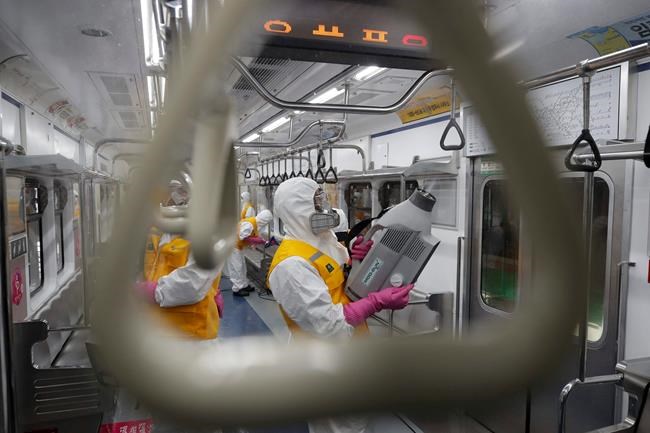
“All countries can still change the course of this pandemic. If countries detect, test, treat, isolate, trace and mobilize their people in the response,” he said. “We are deeply concerned by the alarming levels of spread and severity and by the alarming levels of inaction.”
After downplaying the threat of the virus for days, President Donald Trump announced in an Oval Office address he is sharply restricting European passenger travel to the U.S. and moving to ease the pandemic’s economic costs.
The NBA became the first major American sports league to suspend play, which raised questions about college basketball’s championships, which for now will be played without fans attending. In Italy, soccer club Juventus said defender Daniele Rugani tested positive.
Iran and Italy are the new front lines of the fight against the virus that started in China, the WHO said.
“They’re suffering but I guarantee you other countries will be in that situation soon,” said Dr. Mike Ryan, the WHO’s emergencies chief.
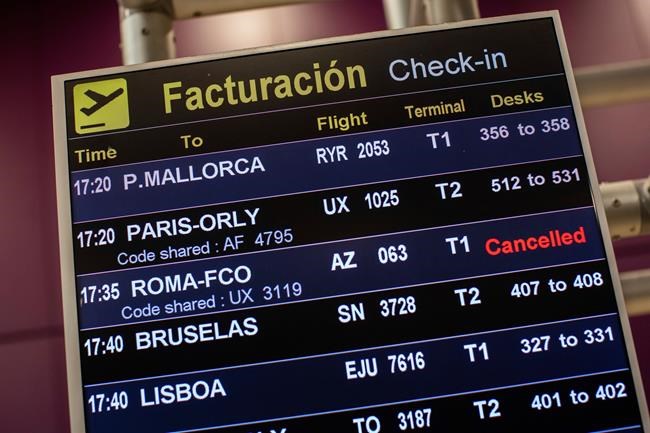
For the global economy, virus repercussions were profound, with increasing concerns of wealth- and job-wrecking recessions. U.S. stocks wiped out more than all the gains from a huge rally a day earlier as Wall Street continued to reel.
The Dow Jones Industrial Average dropped 1,464 points, bringing it 20% below its record set last month and putting it in what Wall Street calls a “bear market.” The broader S&P 500 is just 1 percentage point away from falling into bear territory and bringing to an end one of the greatest runs in Wall Street’s history.
WHO officials said they thought long and hard about labeling the crisis a pandemic — defined as sustained outbreaks in multiple regions of the world.
The risk of employing the term, Ryan said, is “if people use it as an excuse to give up.” But the benefit is “potentially of galvanizing the world to fight.”
Underscoring the mounting challenge: soaring numbers in the U.S. and Europe’s status as the new epicenter of the pandemic. While Italy exceeds 12,000 cases and the United States has topped 1,300, China reported a record low of just 15 new cases Thursday and three-fourths of its infected patients have recovered.
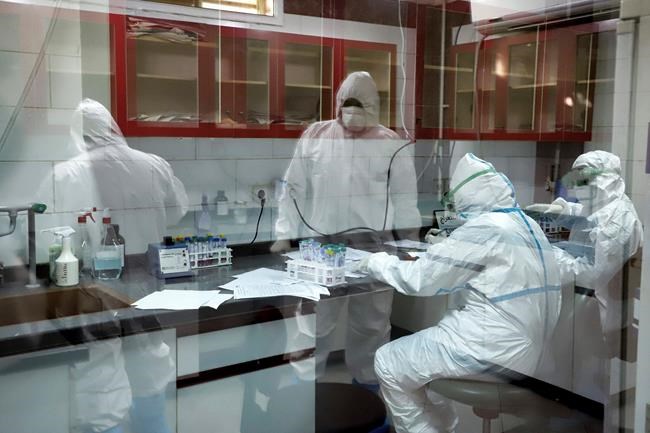
China’s totals of 80,793 cases and 3,169 deaths are a shrinking portion of the world’s more than 126,000 infections and 4,600 deaths.
“If you want to be blunt, Europe is the new China,” said Robert Redfield, the head of the U.S. Centers for Disease Control and Prevention.
With 12,462 cases and 827 deaths, Italy said all shops and businesses except pharmacies and grocery stores would be closed beginning Thursday and designated billions in financial relief to cushion economic shocks in its latest efforts to adjust to the fast-evolving crisis that silenced the usually bustling heart of the Catholic faith, St. Peter’s Square.
In Iran, by far the hardest-hit country in the Middle East, the senior vice-president and two other Cabinet ministers were reported to have been diagnosed with COVID-19, the illness caused by the virus. Iran reported another jump in deaths, by 62 to 354 — behind only China and Italy.
Italian Premier Giuseppe Conte said it was necessary to “go another step” in toughening the already unprecedented travel and social restrictions that took effect Tuesday by shuttering pubs, restaurants, hair salons, cafeterias and other businesses that can’t operate with a meter (yard) of space between workers and customers.
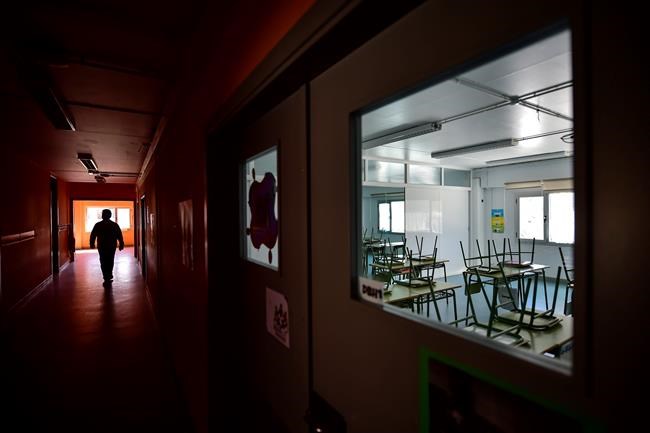
“In this moment, all the world is looking at us for the number of infections, but also … see great resistance,” Conte said on Facebook Live.
These measures are on top of travel and social restrictions that imposed an eerie hush on cities and towns across the country.
Still, the effectiveness of travel restrictions and quarantines will likely drop substantially as COVID-19 spreads globally, making it impossible for countries to keep out the virus. Health officials will also need to be more flexible in their co-ordinated response efforts, as the epicenters are likely to shift quickly and dramatically.
For most, the coronavirus causes only mild or moderate symptoms, such as fever and cough. But for a few, especially older adults and people with existing health problems, it can cause more severe illnesses, including pneumonia. But the vast majority recover: People with mild illness recover in about two weeks, while more severe illness may take three to six weeks, WHO says.
In the Mideast, most of the nearly 10,000 cases are in Iran or involve people who travelled there. Iran’s semiofficial Fars news agency said they include Vice-President Eshaq Jahangiri. Iran’s ministers for cultural heritage, handcrafts and tourism, and for industry, mines and business were also infected, the agency said.

The United States snapped to attention with its spreading caseload and the impact of cancelled events. The NCAA said it would play March Madness with no fans, and the NBA said it would suspend its season until further notice. Cities cancelled St. Patrick’s Day parades, and several colleges shut down. Actor Tom Hanks and his wife Rita Wilson said they had the virus. He had been working in Australia when they felt ill with slight fevers, his statement said.
Officials in Seattle announced that public schools would close for about 53,000 students and large gatherings were banned in San Francisco and in Washington state, the hardest-hit U.S. state, with 29 deaths.
The virus upended the U.S. presidential campaign, with U.S. Vice-President Joe Biden and Sen. Bernie Sanders cancelling rallies and leaving open the possibility that future campaign events could be impacted. Trump’s campaign insisted it would proceed as normal, although Vice-President Mike Pence conceded future rallies would be evaluated “on a day to day basis.”
And at a Congressional hearing in Washington Dr. Anthony Fauci, director of the National Institute of Allergy and Infectious Disease, sounded an alarm: “Bottom line, it’s going to get worse.”
___
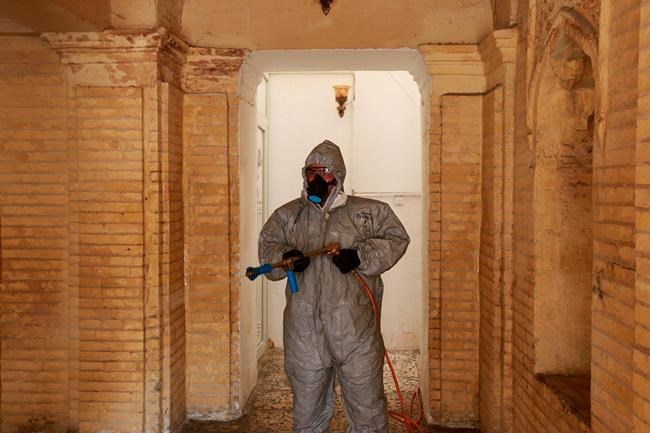
Leicester reported from Paris, Cheng reported from London. Also contributing were Colleen Barry in Soave, Italy; Nicole Winfield in Rome; Sylvie Corbet in Paris; Geir Moulson in Berlin; Pan Pylas in London; LLazar Semini in Tirana, Albania; Matt Sedensky in Bangkok; Joe McDonald and Ken Moritsugu in Beijing; Yuri Kageyama in Tokyo; Tales Azzoni in Madrid, Alan Clendenning in Phoenix and Kim Tong-hyung in Seoul, South Korea.
___
The Associated Press receives support for health and science coverage from the Howard Hughes Medical Institute’s Department of Science Education. The AP is solely responsible for all content.
___
Follow AP coverage of the virus outbreak at https://apnews.com/VirusOutbreak and https://apnews.com/UnderstandingtheOutbreak
